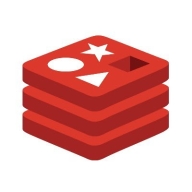

Find out in this report how the two Message Queue (MQ) Software solutions compare in terms of features, pricing, service and support, easy of deployment, and ROI.


IBM MQ is a middleware product used to send or exchange messages across multiple platforms, including applications, systems, files, and services via MQs (messaging queues). This solution helps simplify the creation of business applications, and also makes them easier to maintain. IBM MQ is security-rich, has high performance, and provides a universal messaging backbone with robust connectivity. In addition, it also integrates easily with existing IT assets by using an SOA (service oriented architecture).
IBM MQ can be deployed:
IBM MQ supports the following APIs:
IBM MQ Features
Some of the most powerful IBM MQ features include:
IBM MQ Benefits
Some of the benefits of using IBM MQ include:
Reviews from Real Users
Below are some reviews and helpful feedback written by IBM MQ users who are currently using the solution.
PeerSpot user Sunil S., a manager at a financial services firm, explains that they never lose messages are never lost in transit, mentioning that he can store messages and forward them as required: "Whenever payments are happening, such as incoming payments to the bank, we need to notify the customer. With MQ we can actually do that asynchronously. We don't want to notify the customer for each and every payment but, rather, more like once a day. That kind of thing can be enabled with the help of MQ."
Another PeerSpot reviewer, Luis L. who is a solutions director at Thesys Technologies, says that IBM MQ is a valuable solution and is "A stable and reliable software that offers good integration between different systems."
The head of operations at a financial services firm notes that "I have found the solution to be very robust. It has a strong reputation, is easy to use, simple to configure in our enterprise software, and supports all the protocols that we use."
In addition, a Software Engineer at a financial services firm praises the security benefits of it and states that “it has the most security features I've seen in a communication solution. Security is the most important thing for our purposes."
Redis is a high-performance, scalable, and easy-to-use caching solution that improves application performance. It is also used for session management, real-time analytics, and as a message broker.
Redis's valuable features include its ability to handle large amounts of data quickly, its simplicity and straightforward setup process, and its support for various data structures, providing flexibility for different use cases.
We monitor all Message Queue (MQ) Software reviews to prevent fraudulent reviews and keep review quality high. We do not post reviews by company employees or direct competitors. We validate each review for authenticity via cross-reference with LinkedIn, and personal follow-up with the reviewer when necessary.